By Minyi Jiang
More than a dozen UC Santa Barbara students gave moving accounts of their COVID-19 pandemic experiences at a showcase last week that marked the close of a narrative nonfiction initiative, which received funds from the Executive Vice Chancellor’s Office.
“It's important to give students the platform and support to craft, write, revise, and present stories of their lived experiences of a very difficult two years. They are living through history and writing it in real time,” said Ellen Whittet, a continuing lecturer in UCSB’s Writing Program who served as faculty facilitator for the Pandemic Stories Creative Nonfiction Project.
The initiative was open to sophomore, junior, and senior undergraduate students at UCSB. Each student receives a $500 stipend and worked collaboratively with faculty mentors and other students through various workshops and meetings to complete their individual projects. A few missed because they were sick, but 14 of the 17 participants presented their projects.
UC Santa Barbara Writing Program lecturer Ellen Whittet introducing the “Pandemic Stories” showcase last week
“I see their work as documents they'll be able to return to throughout their lives to remember the strange, isolated, and challenging years during which they went to college,” Whittet said. “The showcase allowed them to share and celebrate that time in a supportive and inspiring community of fellow writers.”
The event gave voice to what many students have gone through, including mental health struggles and loss of the loved ones. Some said they found writing helped them relieve grief, stress, and anxiety by allowing them to reflect on their relationships with themselves, family members, partners, and friends during the past two years.
Lila Velasquez Singh, a fourth-year Writing and Literature major in the College of Creative Studies, showed her illustrated essay on the early days of the pandemic titled At Home. “As I speak, I wonder if all my time at UCSB has been this: collapsing, failing, struggling to thrive. I wonder if I should blame myself. I wonder if there's more I could be doing to make it not the case. I wonder if I can blame anything on the pandemic. ‘Maybe,’ my housemate says. ‘Or maybe not.’”
Christina Guerrero is a first-generation college student who experienced grief, anxiety, and fearfulness during the pandemic. “My days spent in my mom's bedroom slouching over my laptop or scribbling in my journal brought me out of my shell of myself that I had been stuck in for years,” she wrote in her memoir Con Dos Vistas. “Weeks of consistent therapy brought up trauma I didn't even know existed. I learned how to cope with these negative feelings and lend myself grace.”
Haoning Zhu, a third-year international student from China also shared a ‘silver lining’ tale when she read from her project From Sleepy Zoomers to Prizewinners: A Chinese Student Friendship Story. In it, she described completing a group project with other Chinese students in her business writing class, which ultimately won the best project award. She and other group members attended the class when it was 3 a.m. in China, via Zoom, and bonded as friends by supporting each other through the isolation of pursuing their UCSB education from their bedrooms abroad.
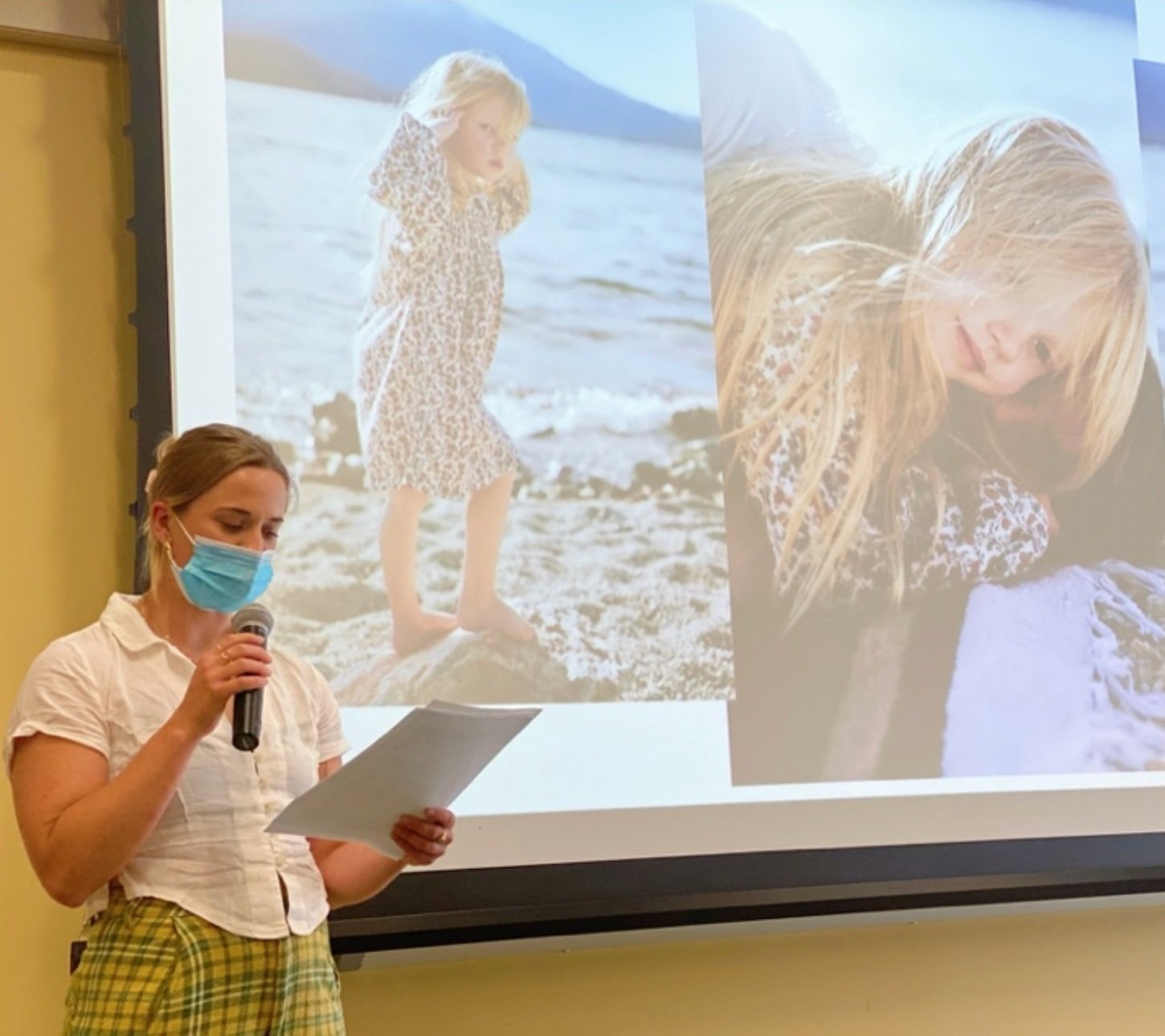
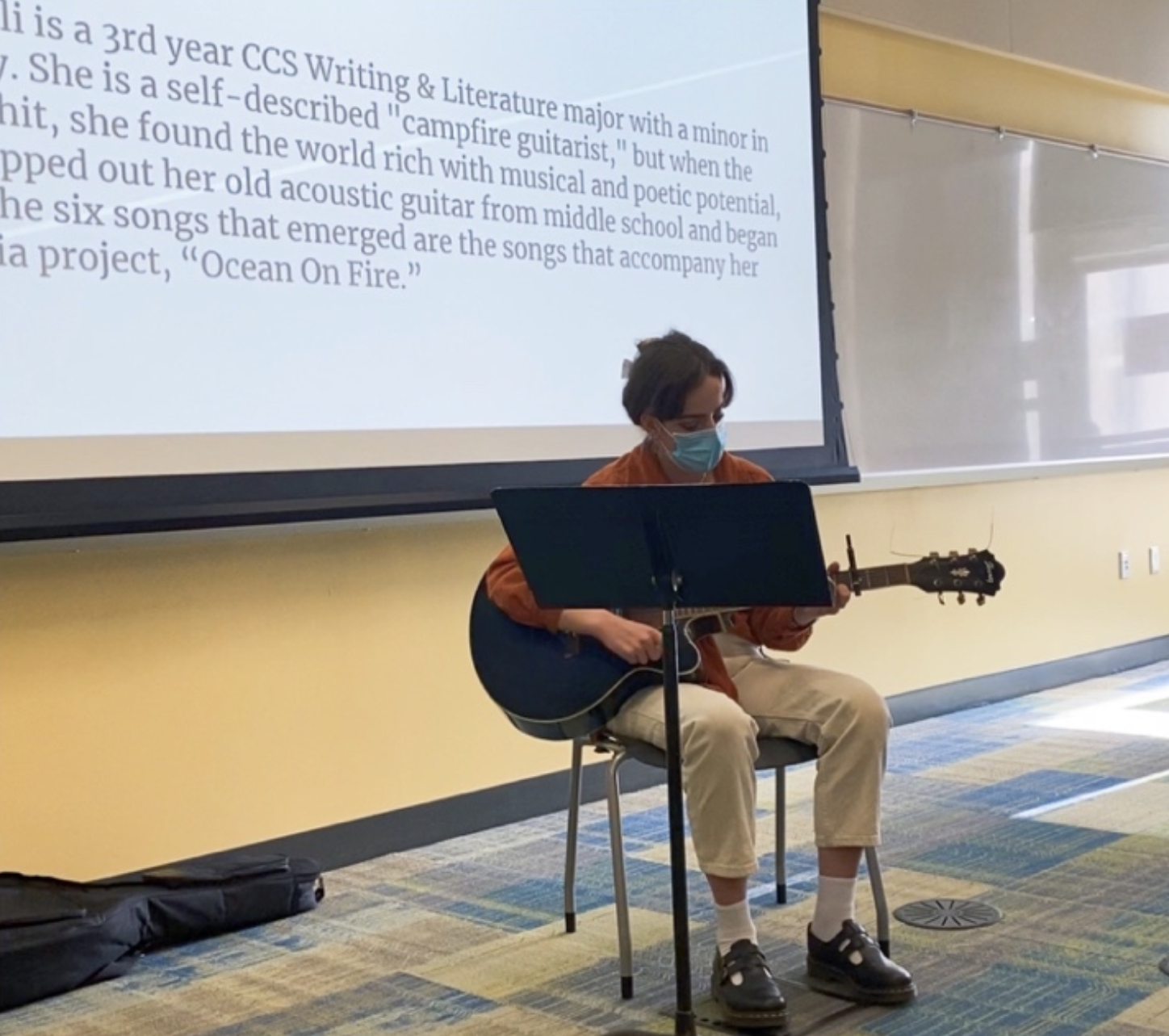
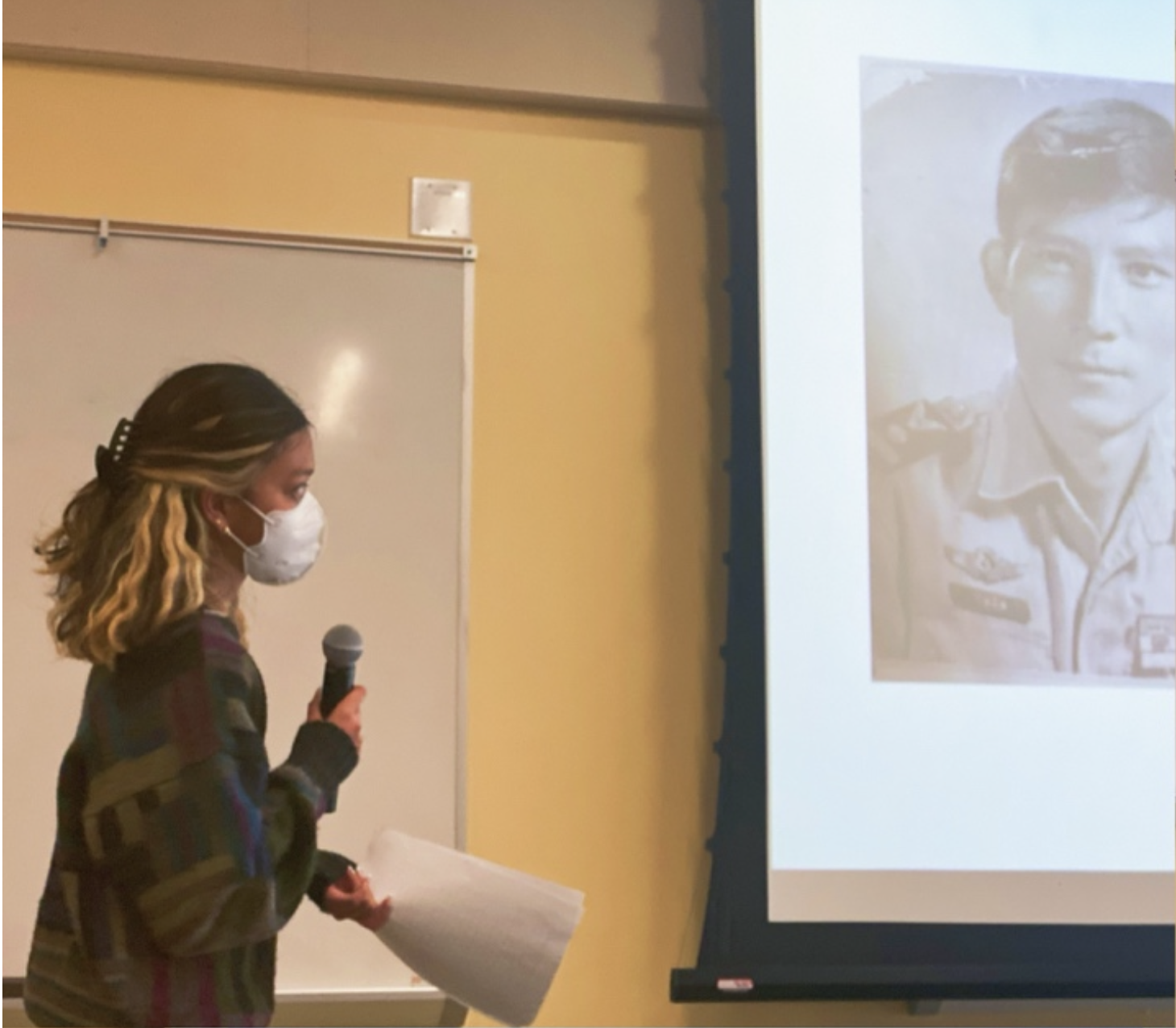
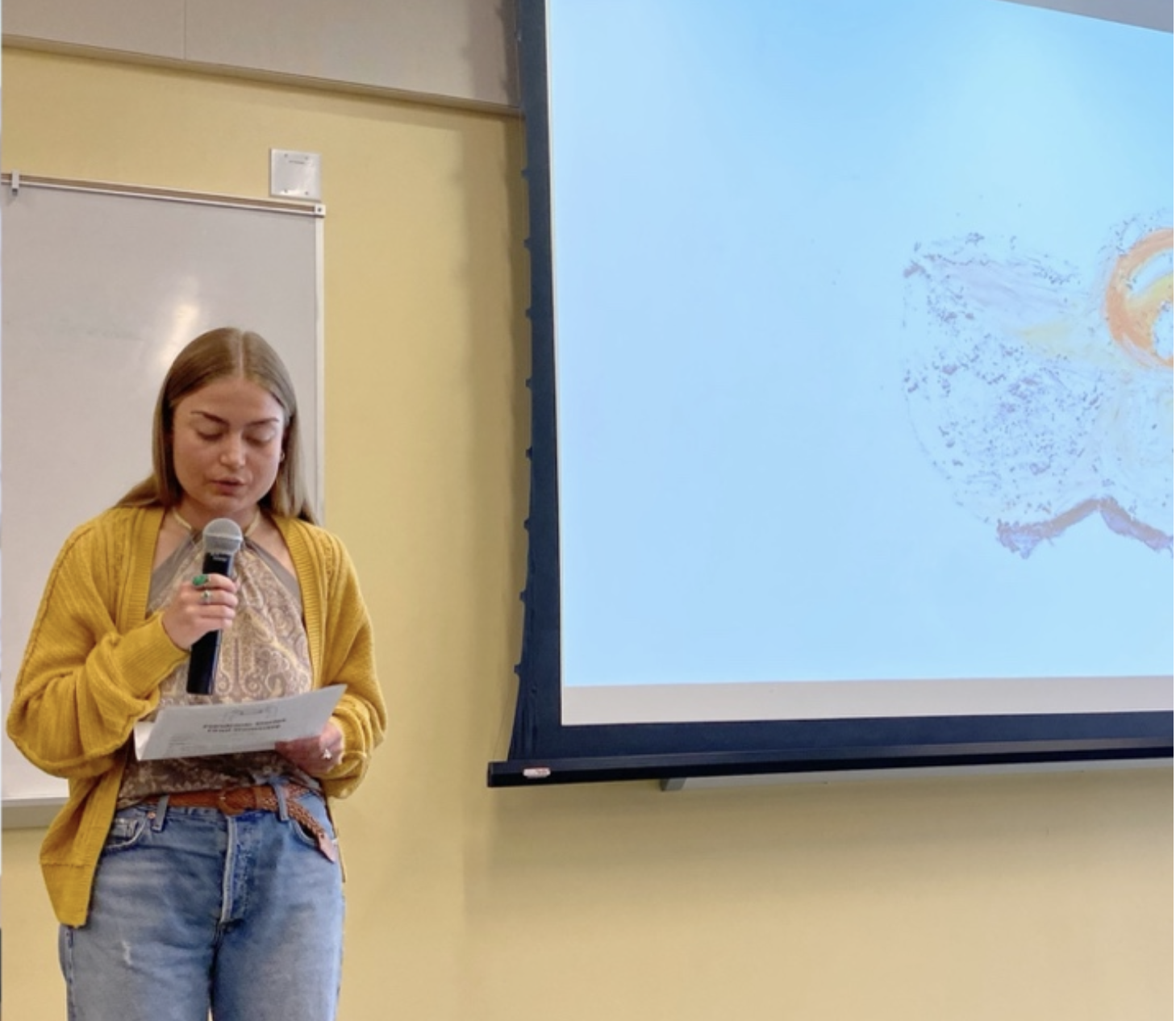
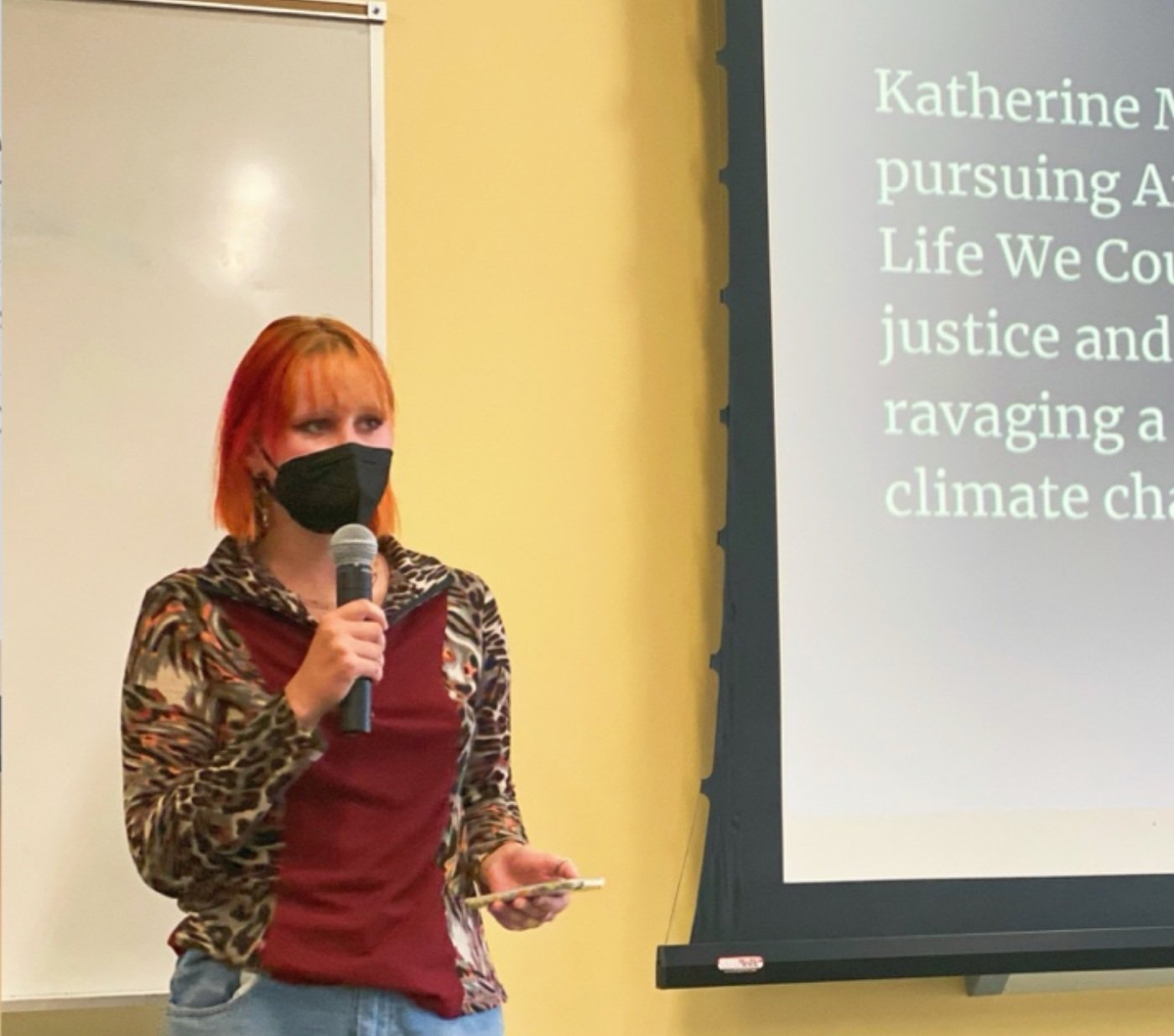
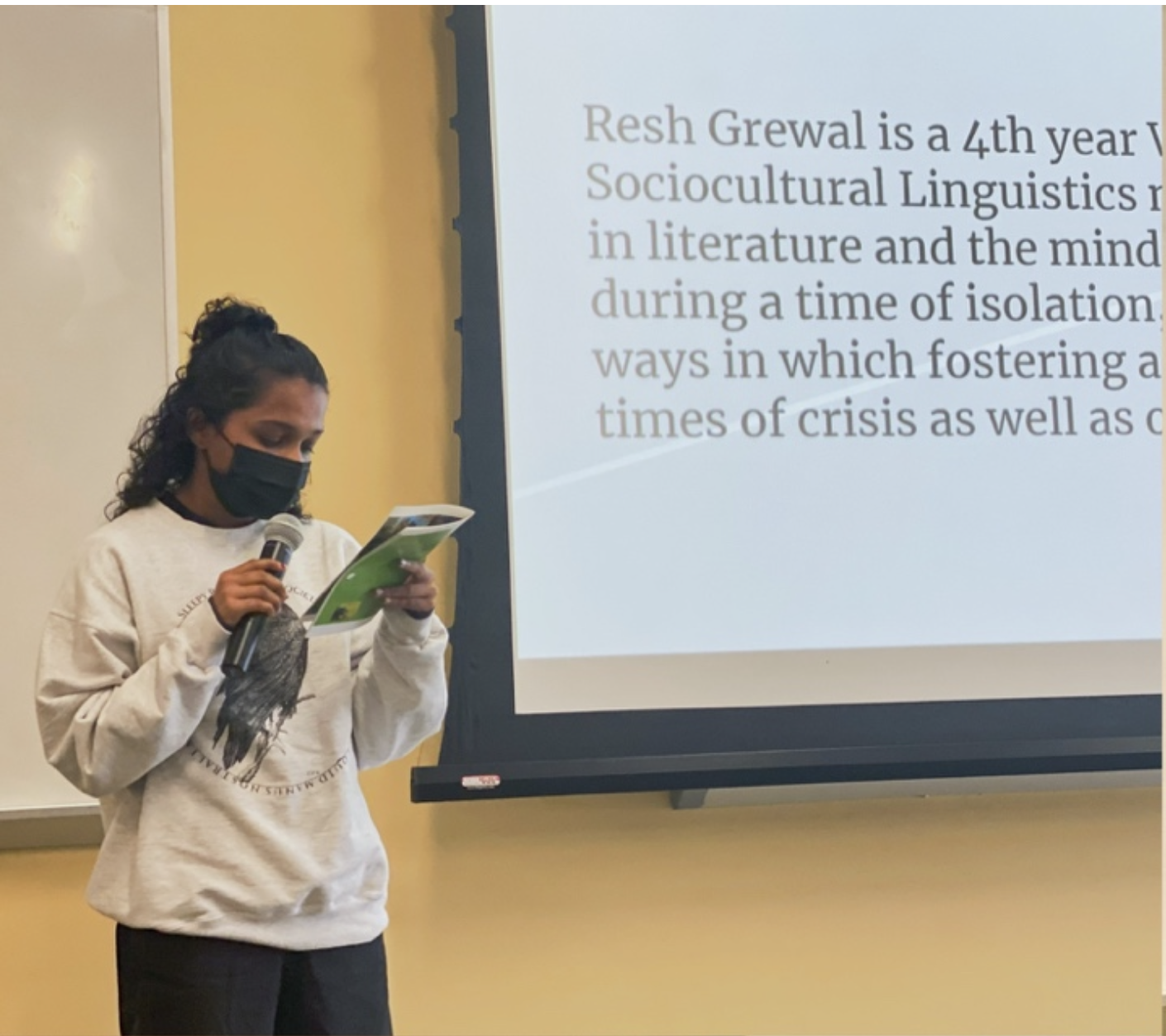
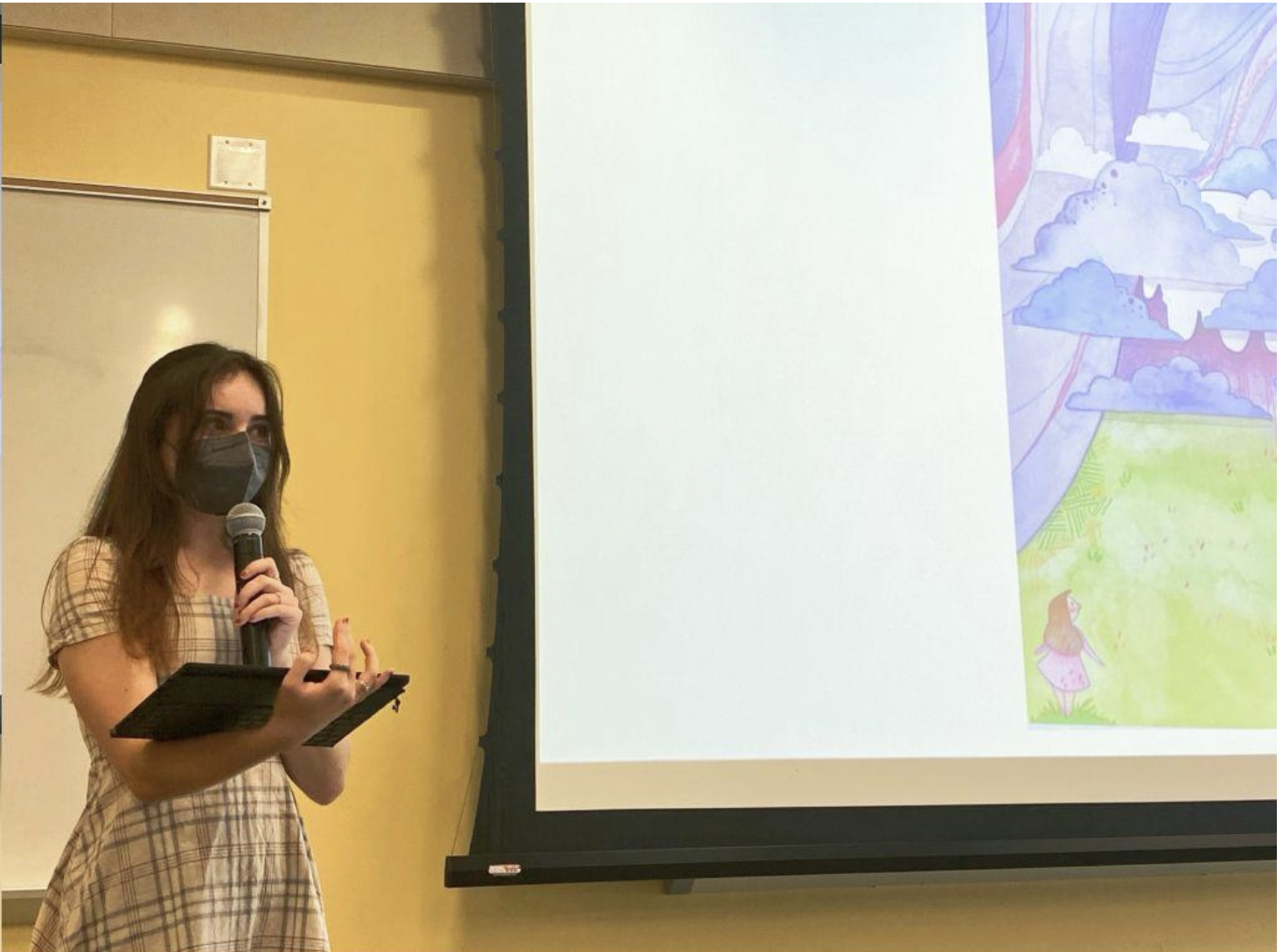
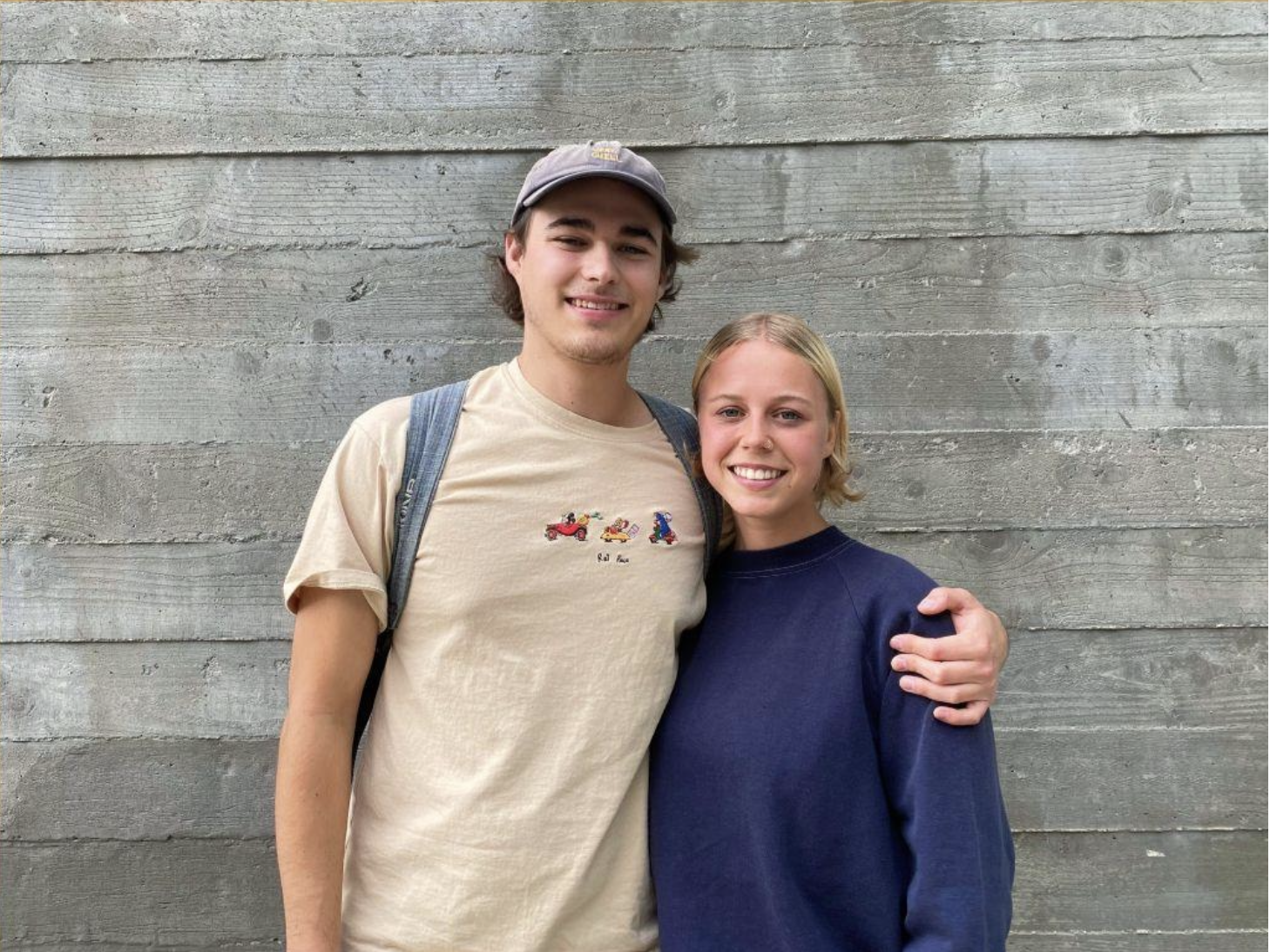
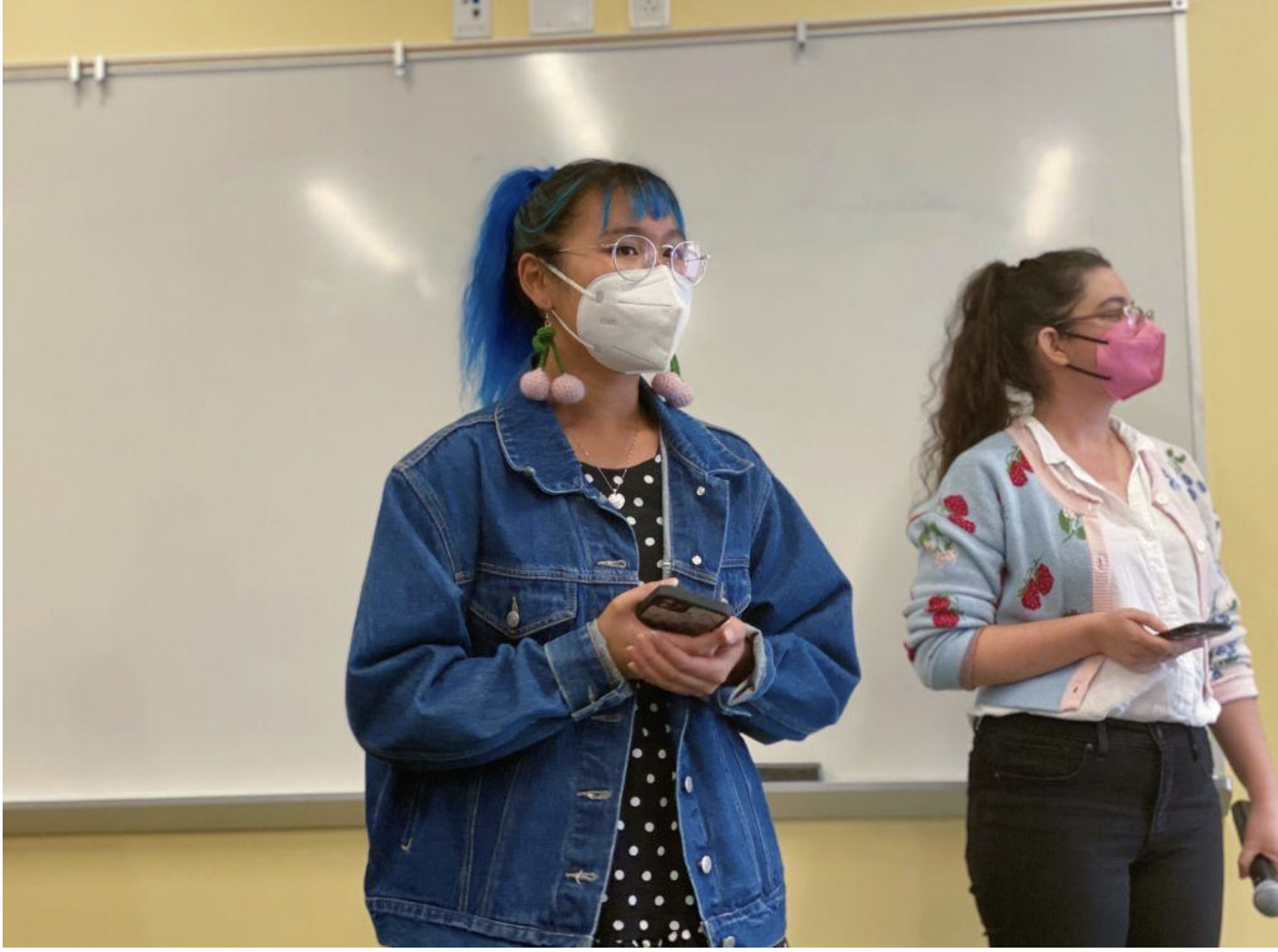
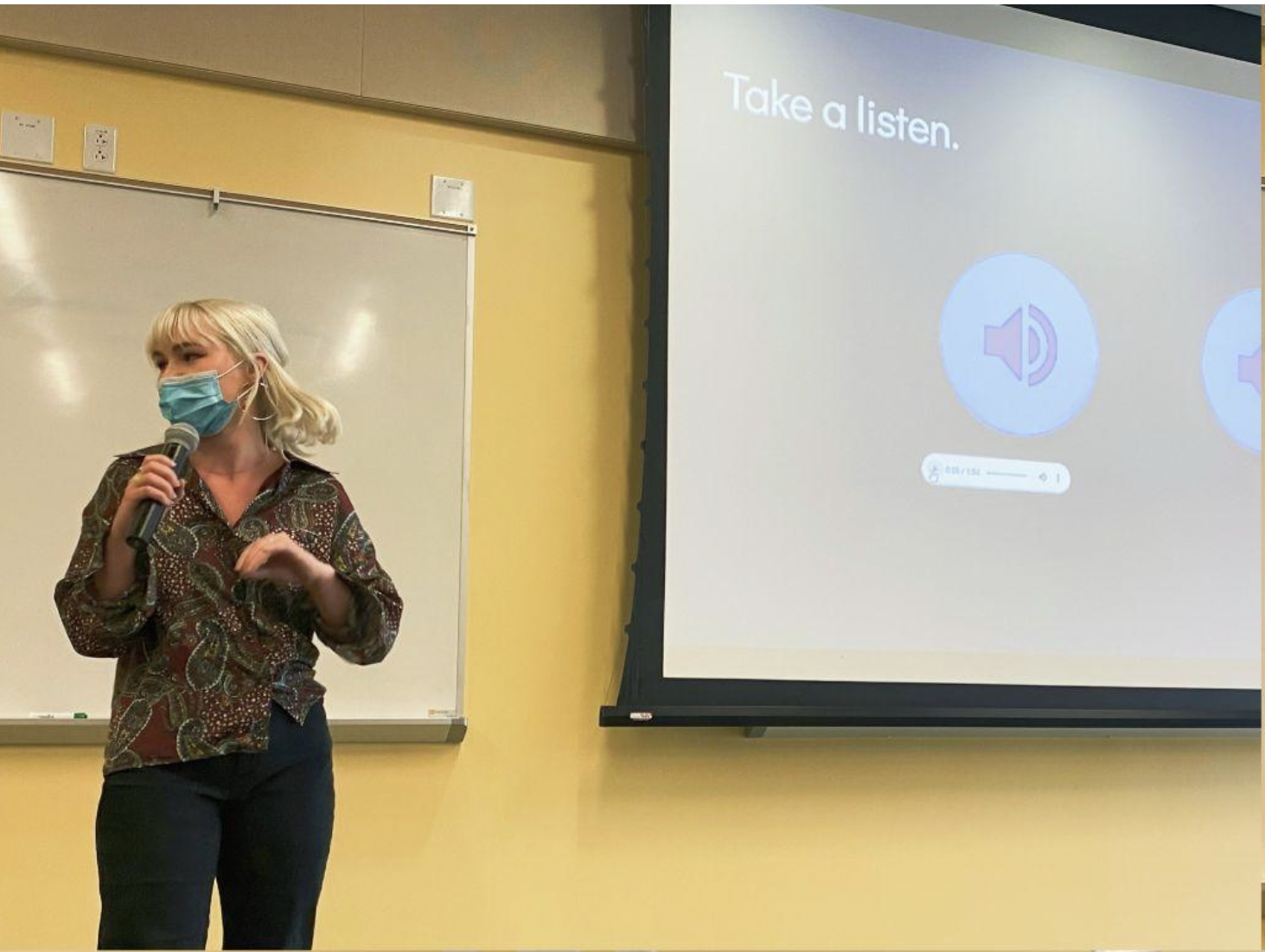
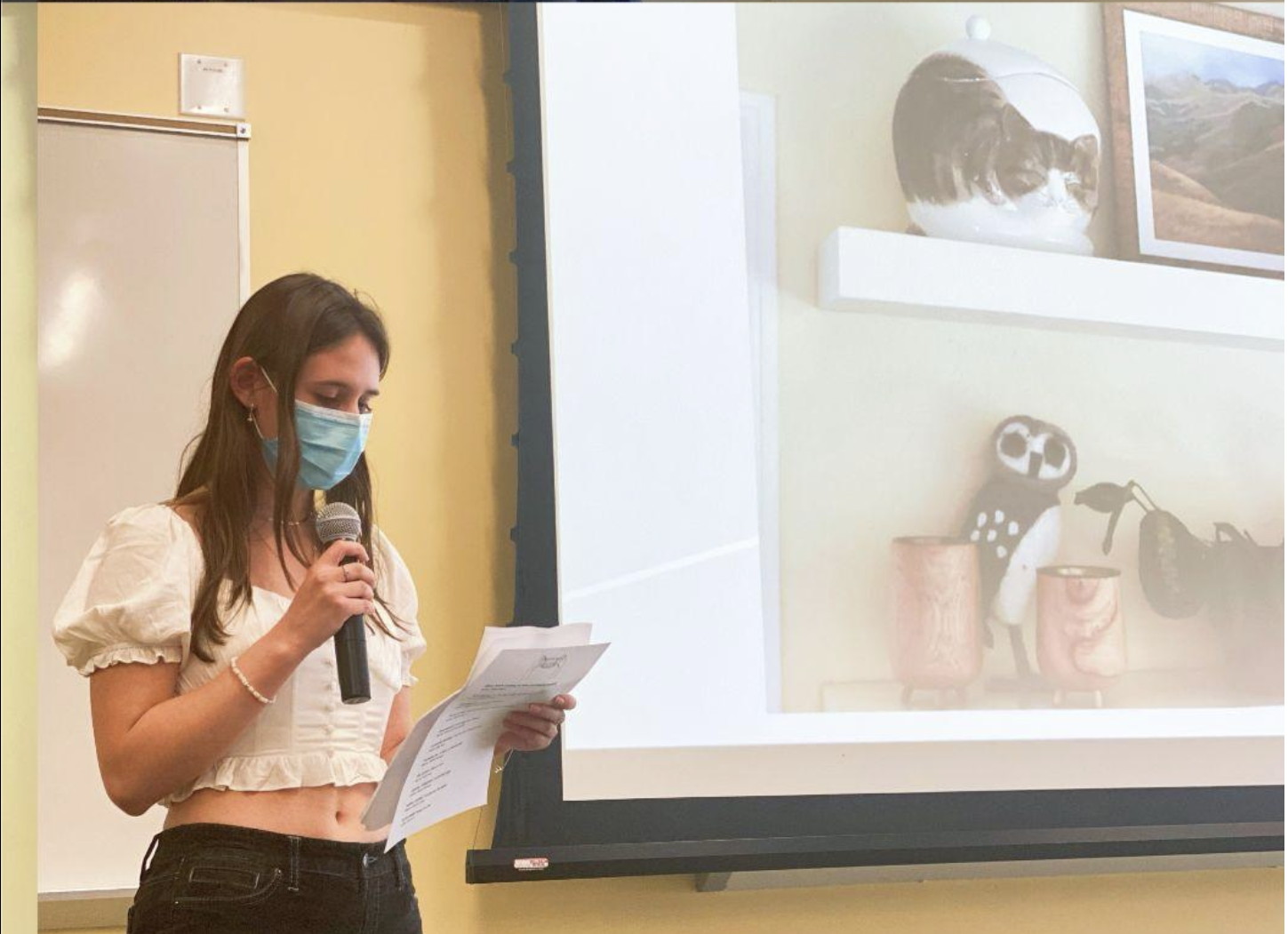
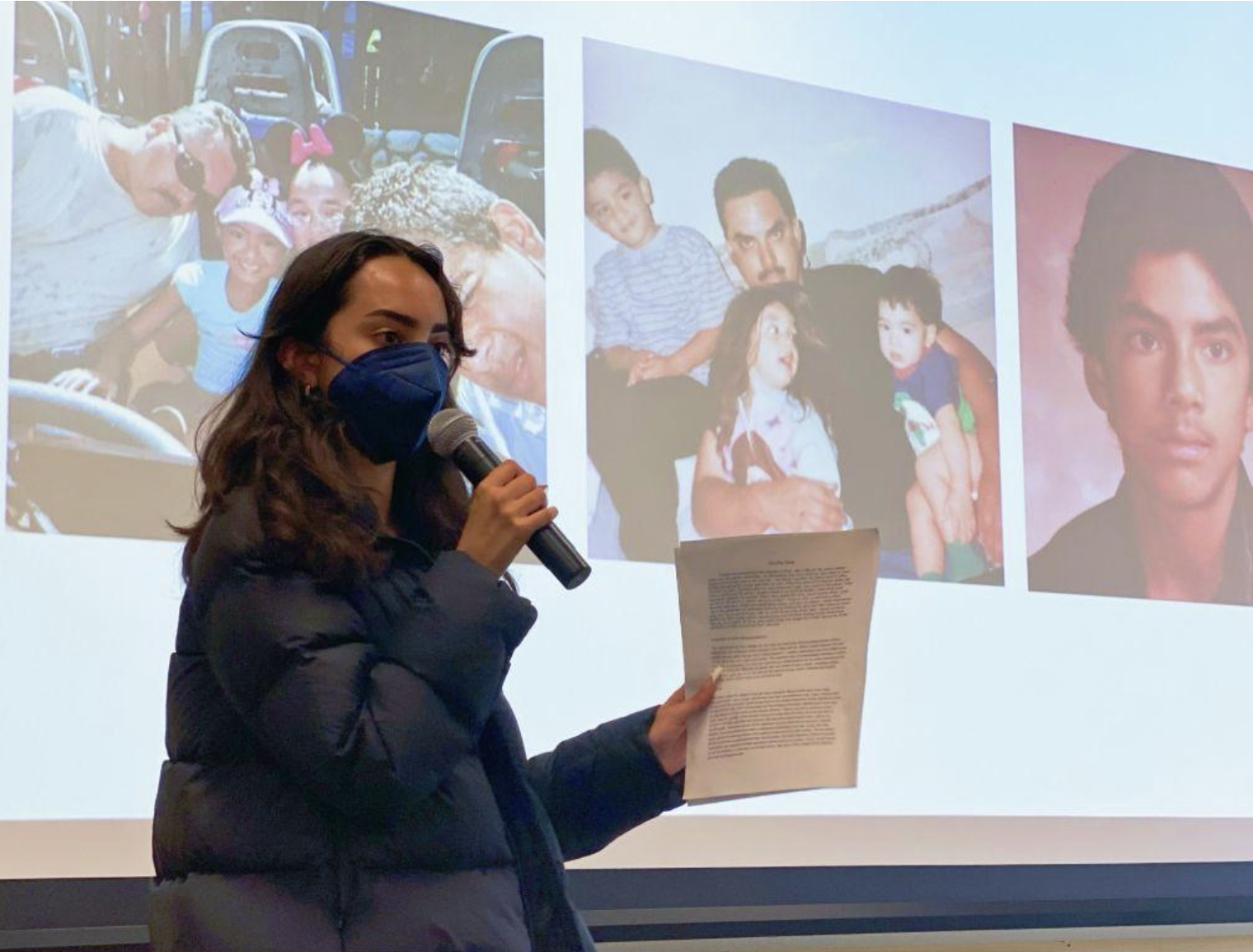
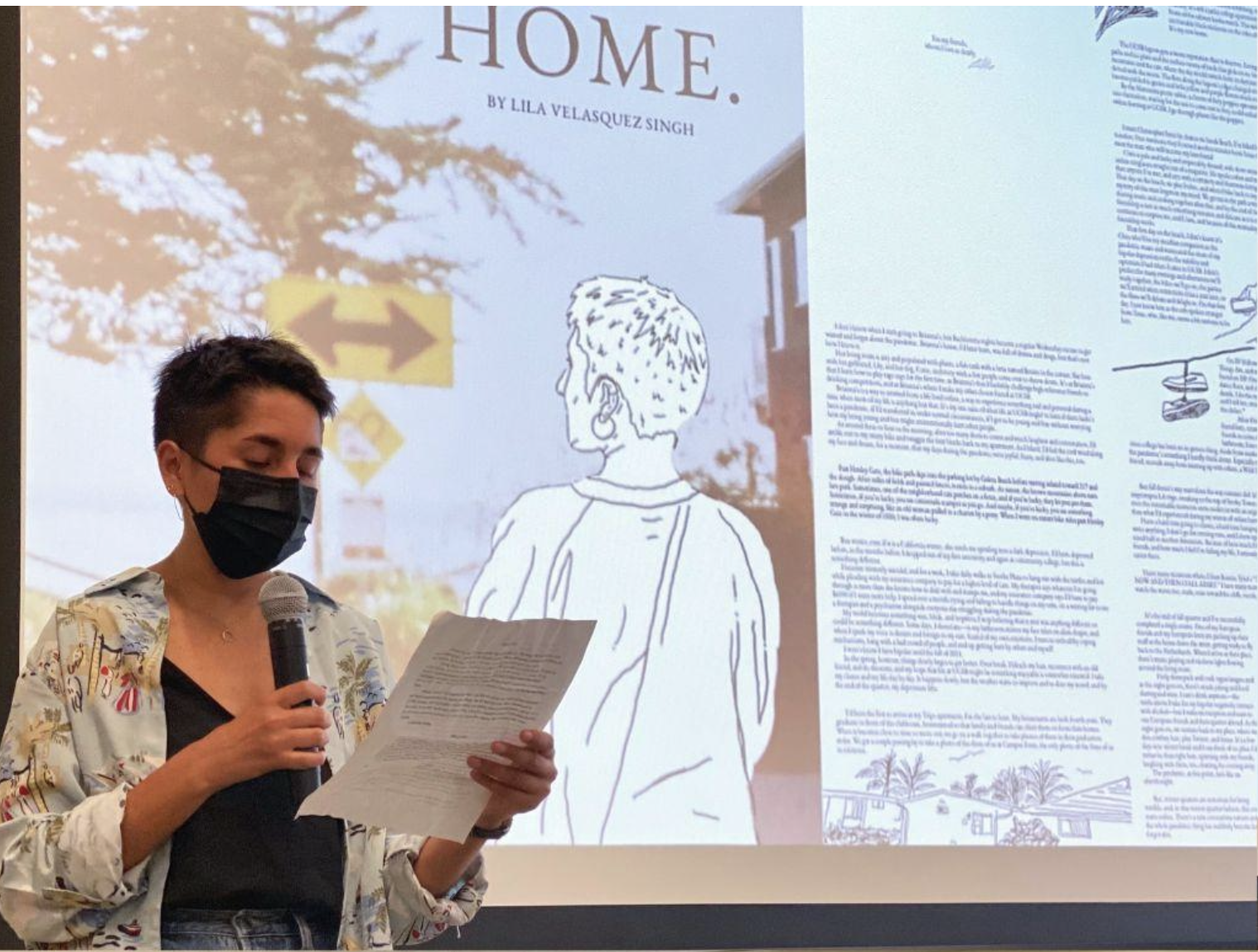
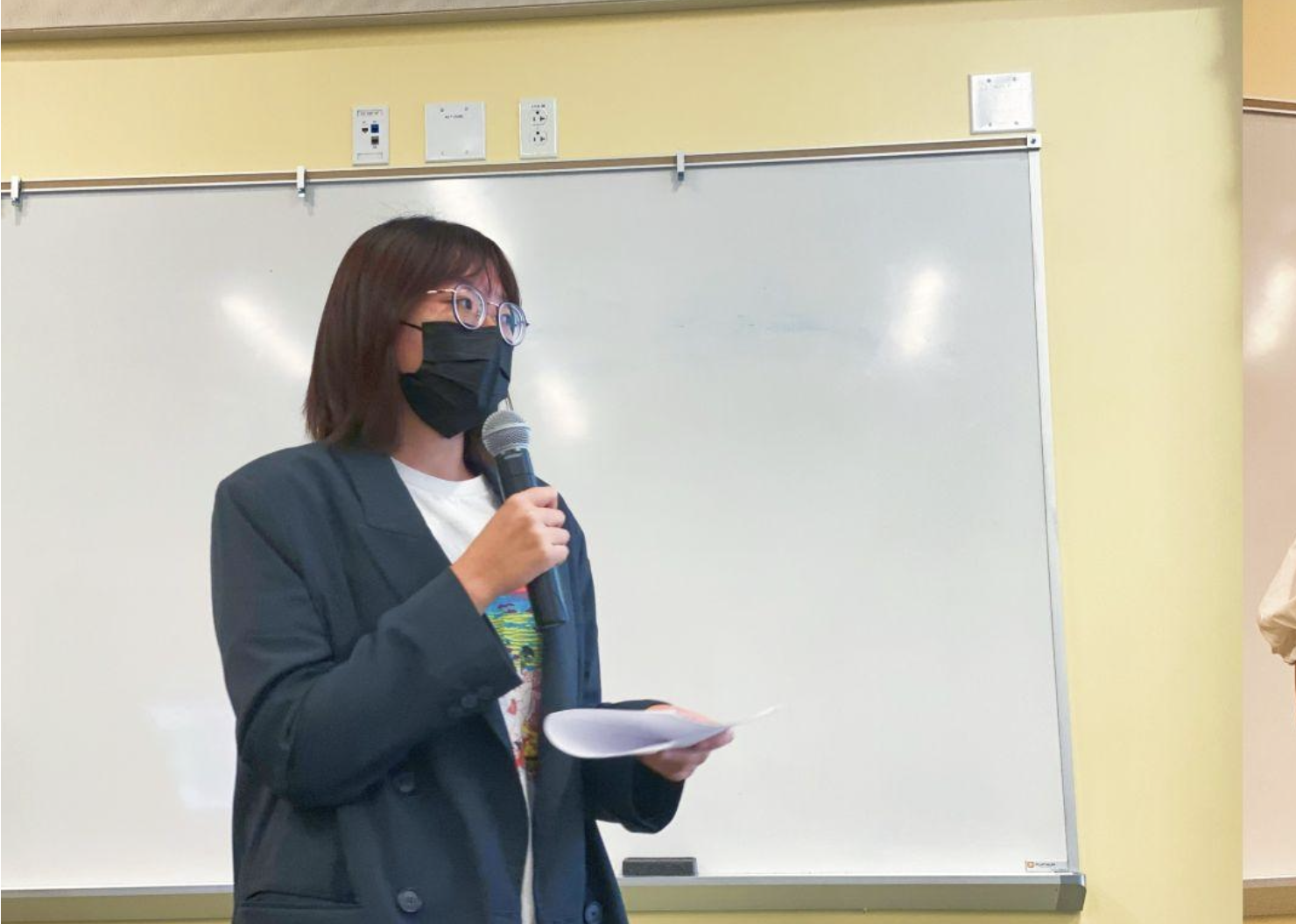
Ashley Rusch, a broadcast journalist at the independent UCSB radio station KCSB-FM, created a three-episode audio memoir in which she recounted developing an intimate relationship, other friendships, and experiencing ‘imposter syndrome’ during the pandemic. “Writing about such an intimate, universal part of the human experience was a really rewarding, challenging, and cathartic experience, and I think those themes will be relatable for a lot of readers and listeners,” Rusch said.
Chase Duma’s project focused on his struggle with OCD, Obsessive-Compulsive Disorder. “You have these things that just get stuck in your brain that you obsess over, and that makes you super anxious. The compulsions are usually like things you do to quell that anxiety. A very common example that happens in a lot of people is that they'll obsess about germs and sickness and stuff, and the compulsions that follow that obsession are like constant hand washing, constant hand sanitizing, and constant showering,” Duma said.
He feels the condition is misunderstood and writing about how it manifested during the pandemic can help others. “I think the most fulfilling part about writing was being able to spread awareness about all of the specific ways that it can act, and bringing more visibility and nuance to its definition in some people's minds. This was a really cool opportunity, and it really meant a lot to me.”
UCSB Writing Program faculty facilitator Ellen Whittet (back row, second from left), with several of the student presenters for the Pandemic Stories creative nonfiction project.
Katherine McCabe struck a tone of dark humor in her presentation, with many jokes. Her personal narrative reflected on her difficult experience with brain injury and her decision to drop out of school prior to the pandemic in February 2020. “My actual piece is not as funny. I wanted to make it a little bit more serious and tell in detail the things I actually did throughout the pandemic,” McCabe said in an interview after the event. “But I think that humor is a really great way of making deep and difficult subjects more engaging. It's a great way to communicate serious subjects without scaring people off.”
Veronica Vo, one of several student presenters who are minoring in Professional Writing, read an excerpt about a visit to her grandparents, called To Miss, To Remember. She explored her family's grief and happy memories and reflected on her identity. “I can’t even talk to my grandparents… but I wanted too much. Grief is a stranger to me,” she said.
In The Spaces We Make, single parent Sydney Domke wrote about her life with her daughter, and how she found ways to balance motherhood, working, and being a full-time student at UC Santa Barbara.
Sierra Vakili, a self-described “campfire guitarist” ended the event by performing a song she wrote as part of her project Ocean on Fire. “The project is a retelling of my love life during the pandemic. It includes six songs that I wrote throughout the pandemic about my love life and what was happening, including some mental breakdowns, tired moments, the moments of heartbreaking, and the moments of happiness which is the song I sang for everyone today,” Vakili said. “It’s called ‘Happy One’. This is my happy one, my happy song. That’s why it’s called that.”
The Writing Program plans to post the Pandemic Stories creative nonfiction project on its website, many of which have multimedia components to augment the written work.
Minyi Jiang is a third-year UC Santa Barbara student majoring in Middle East Studies. She covered this event for her Writing Program course Digital Journalism.



